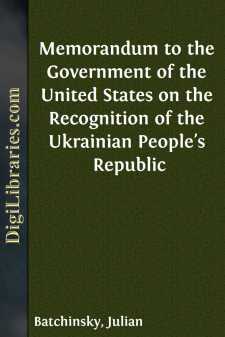Categories
- Antiques & Collectibles 13
- Architecture 36
- Art 48
- Bibles 22
- Biography & Autobiography 816
- Body, Mind & Spirit 145
- Business & Economics 28
- Children's Books 17
- Children's Fiction 14
- Computers 4
- Cooking 94
- Crafts & Hobbies 4
- Drama 346
- Education 58
- Family & Relationships 59
- Fiction 11834
- Foreign Language Study 3
- Games 19
- Gardening 17
- Health & Fitness 34
- History 1378
- House & Home 1
- Humor 147
- Juvenile Fiction 1873
- Juvenile Nonfiction 202
- Language Arts & Disciplines 89
- Law 16
- Literary Collections 686
- Literary Criticism 179
- Mathematics 13
- Medical 41
- Music 40
- Nature 179
- Non-Classifiable 1768
- Performing Arts 7
- Periodicals 1453
- Philosophy 66
- Photography 2
- Poetry 897
- Political Science 203
- Psychology 45
- Reference 154
- Religion 516
- Science 126
- Self-Help 85
- Social Science 82
- Sports & Recreation 34
- Study Aids 3
- Technology & Engineering 59
- Transportation 23
- Travel 463
- True Crime 29
Our website is made possible by displaying online advertisements to our visitors.
Please consider supporting us by disabling your ad blocker.
Memorandum to the Government of the United States on the Recognition of the Ukrainian People's Republic
Description:
Excerpt
The Honorable, The Secretary of State,
Department of State, Washington.
Sir:
In view of the present status in eastern Europe, and in deference to the unsettled affairs of the territory of the former Russian empire, which are now pressing for a definite solution, I, as the representative of the Government of the Ukrainian People's Republic, conceive it to be my duty to submit for your consideration this memorandum setting forth the just claims of the Ukrainian people to political and economic independence. As a consequence of the facts herein explained, I respectfully ask the Government of the United States of America to extend recognition to the Ukrainian People's Republic as a free state.
The national aspirations of Ukraine embrace political liberation for all Ukrainians, consolidation of all free Ukrainians into one state, the erection of a constitutional democratic republic, and economic co-operation with neighboring and other states.
Ukraine's claim to independence is based upon the following principal grounds:
(1) The existence of the Ukrainians as a well-defined, separate, group-conscious race, with a continuous historic and cultural tradition;
(2) Their occupation, over a period of centuries, of the lands where they now dwell;
(3) Their age-long efforts, increasingly of popular origin, to achieve and maintain political independence;
(4) The obvious interest and desire of the entire Ukrainian population to organize and sustain its economic life free of exploitation by neighbors and foreign powers; and
(5) The crying need for a new order in eastern Europe, and the permanent elimination of the historic struggle between Poland and Russia to control the natural resources of Ukraine.
By all the canons of ethnology and history, the Ukrainians form a distinct racial unit. In America there has been a popular impression that Ukraine is merely a province of Russia, identified with it linguistically and racially. This is a misapprehension. The leading anthropologists, even among the Russians, agree that the Ukrainians constitute a physical type clearly different from the Great Russians, the White Ruthenians or the Poles. In culture and temperament they display peculiarities which permeate their whole social and moral nature. Their language is a separate Slavic tongue, and not merely a dialect of the Great Russian.
"Between Ukrainians and Russians," says Sir Donald Mackenzie Wallace, a learned student of Russia, "there are profound differences of language, customs, traditions, domestic arrangements, mode of life and communal organizations. Indeed, if I did not fear to ruffle unnecessarily the patriotic susceptibilities of my Great Russian friends who have a pet theory, I should say that we have here two distinct nationalities...."
"The historic development," says the official statement of the Russian Imperial Academy of Sciences, "contributed toward the creation of two nationalities: the Great Russian and the Ukrainian. The historic life of the two peoples failed to develop a common language for them. On the contrary, it really strengthened those dialectic variances with which the ancestors of the Ukrainians, on the one hand, and those of the Great Russians, on the other, made their appearance in history....


